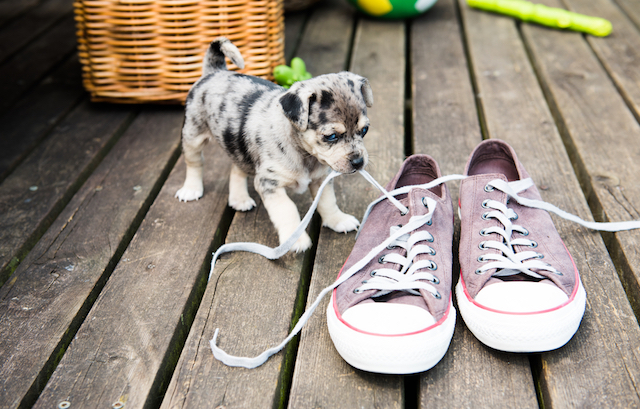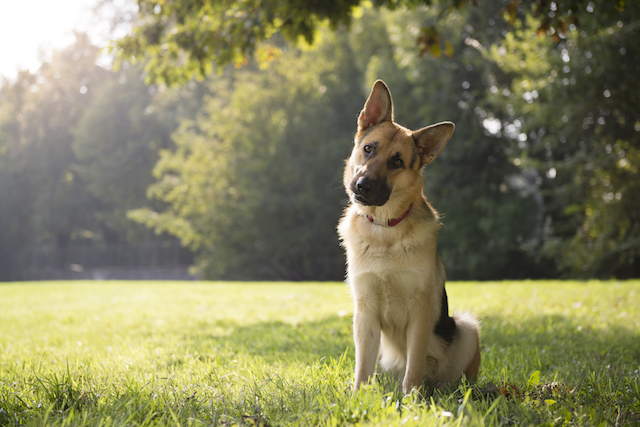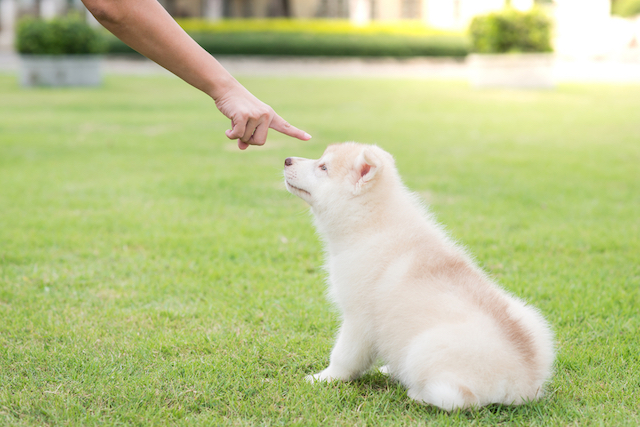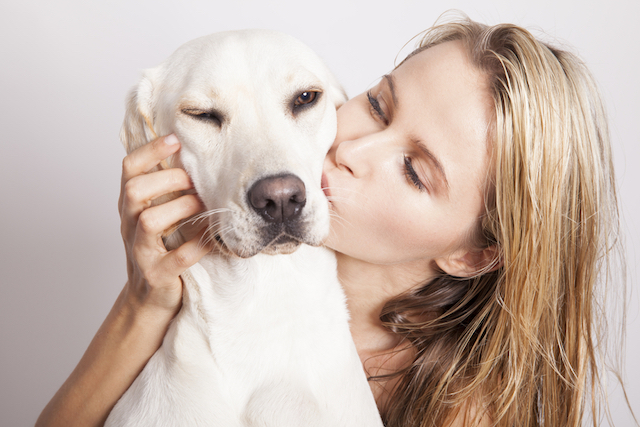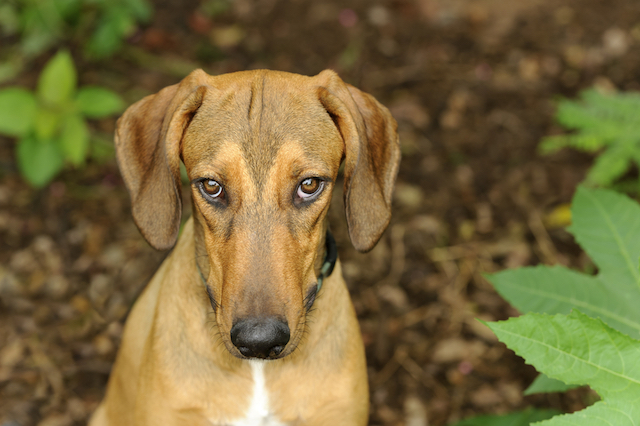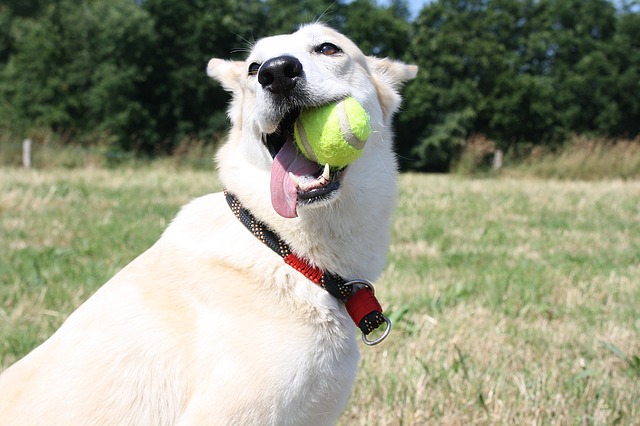
When we love our dogs like family, we sometimes forget that they don’t understand us quite like our human relatives. Sometimes we try to have full-on conversations with them or unknowingly send them body language signals that are interpreted differently in the animal kingdom.
For these reasons, we’ve compiled a list of 13 common things humans do that stress dogs out. If you’ve done any of these things, don’t worry, you’re certainly not alone. However, by being more aware, we can try to communicate with our canines as clearly as possible. Lucky for us, there’s no limit to their forgiveness!
1. Getting frustrated when your dog acts like…a dog!
Dogs bark, dig, chew, sniff, and steal table scraps that are within snout’s reach. To them, it’s natural behavior! (Plus, they don’t understand the value of your favorite pair of shoes.) However, this doesn’t mean your dog should have free reign to do whatever he likes. Instead of punishing these behaviors, they need to be redirected–and this takes patience!
Vet Street suggests alternatives such as giving chewers stuffed Kongs to gnaw on, or teaching barkers to learn to use their “inside voice”.
2. Having inconsistent rules and boundaries
Dogs thrive on consistency and routine, and take comfort in it. If your pup is allowed on the couch one week, then scolded for it the next, she will become stressed when she can’t anticipate your reaction to her behavior. She won’t understand if one night you decide to “let it slide” or you allow her to break the rules for a “special occasion.” When you create boundaries, stick to them!
3. Expecting your dog to obey you just to make you happy
While our dogs love seeing us happy, they’re still animals and opportunists (for instance, if they see an opportunity to snatch some leftover chicken off the counter, they will usually take it!). Some dogs do obey their owners simply to please them, but most of them perform for one simple reason: to receive their reward! Vet Street explains that inconsistent rewarding will most likely lead to inconsistent behavior. And you can’t be angry with your dog for not obeying if he can’t expect a treat in return.
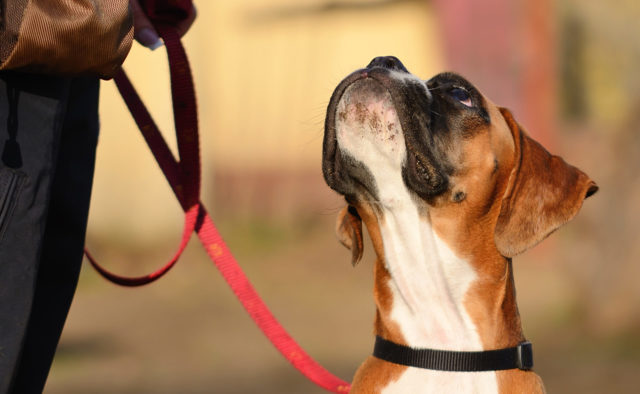
4. Using multiple verbal cues to indicate the same behavior
This one can be a tough habit to break! Say your dog is barking at the mailman, so you say, “shh!” “stop!” and “quiet.” You’ve given her three different commands that are supposed mean the same thing: quit barking! Your dog gets confused so she continues to bark and eventually gets scolded–but she doesn’t know why!
The best plan is to come up with specific words to apply to each trick or command, and to make sure everyone in your family is on the same page. If you use “down” for “lay down,” you may have to use something like “floor” to tell your pup to get off the bed! (Here is a great article on giving command cues.)
5. Changing your shape, size and smell
Once they are full grown, dogs look the same all the time. This is why it can be especially jarring when we constantly change our look. A bulky winter coat, a floppy hat, high heels, sunglasses — all these things alter our external shape, confusing the heck out of our dogs.
Not only do our clothes and accessories change our look, they also carry countless smells. Our shoes, coats, purses, and briefcases pick up odors everywhere we go, giving our dogs’ powerful noses a cornucopia of aromas to contend with at the end of each day. Add in our propensity for powerfully scented products like soaps, deodorants, shampoos, perfumes, and colognes, and it’s easy to see why our pups spend so much time sniffing us!
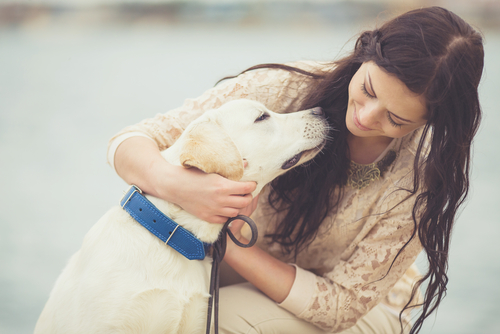
6. Pointing or shaking a finger at them
Healthy Pets explains that this gesture is a “universal stress inducer for dogs.” The article says that it is often accompanied with an angry gesture, a hovering stance, and a stern tone. Your pup may not remember what he did to deserve the “finger point,” but he will know that you’re upset with him, causing anxiety.
7. Restraining or cornering a dog to give him affection
There is lots of debate surrounding whether or not dogs like hugs. The answer is simple: it depends on the dog. (And also the human—some dogs may only enjoy hugs from their trusted loved ones.) While humans know hugs to be a sign of affection, some dogs feel nervous or trapped when a human wraps their arms around them.
Note that there is a difference between hugs and cuddling: a dog that doesn’t like hugs may still love to snuggle because he doesn’t feel restrained. The point is, we need to keep in mind that each dog has a different comfort threshold. They deserve to have their personal boundaries respected, too!
8. Staring at a dog you don’t know
First off, there is a difference between the loving gazes shared between a pup and her family members and a dog that’s being stared down by a stranger–we’re talking about the latter. If you meet a new dog, try to avoid eye contact as he’s getting to know you. Some dogs will consider extended eye contact from a stranger to be a challenge, which will increase their stress response. (My pup Luna and I know this from experience!)
9. Not giving him enough exercise
Like humans, dogs get bored if they don’t have enough physical and mental stimulation in their lives.
“Dogs that are unsatisfied and bored will often start destructive behaviors such as chewing and digging, which leads to unfair punishment and stress,” explains Katie Finlay for iHeartDogs.
Remember, your dog can’t entertain himself by enjoying a Netflix binge or taking himself for a walk. He depends on you to stay fit, physically and mentally!
10. Using Our “Paws”
Most dogs use their paws rather minimally. They are great for getting around and stabilizing a bone during chewing, but for the most part their mouths do the majority of the work. Dogs use their mouths to play, groom themselves, express affection, and most importantly, communicate.
Imagine how strange it must seem to them when we use our “front paws” to do everything! Not only do we deliver food, butt scratches, and toys with our hands, we also use them for negative purposes like trimming nails, giving medicine, and in some cases, delivering punishment. Is it any wonder some dogs become wary of the human hand?
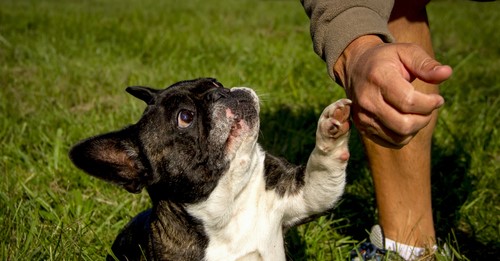
11. Not eating trash and roadkill
Dogs are constantly in search of food, and a lot of the things we discard look and smell like delicious treats to them. We find it disgusting when they feast on roadkill or tear into the stinky trash, but to our dogs this is just a natural survival instinct. In fact, they probably find it baffling that we waste so much good fat, gristle, bone, and semi-rotten food!
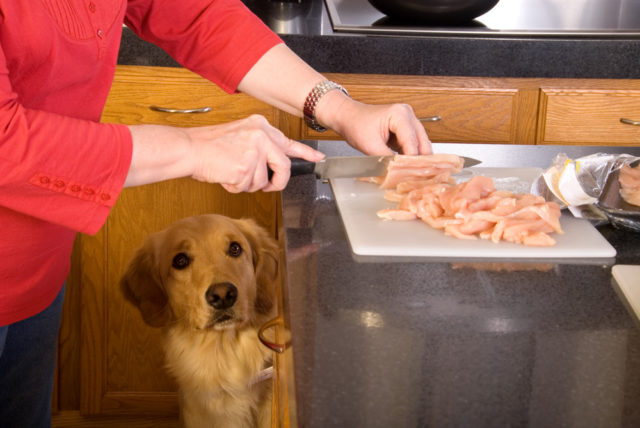
12. Exploring the world with our eyes
Scent is the most important sense to our dogs so it must be strange to coexist with us in our visual world. While we stare at our phones, computers, and televisions, our dogs would rather spend their time sniffing every mailbox between your house and the Dachshund’s down the street.
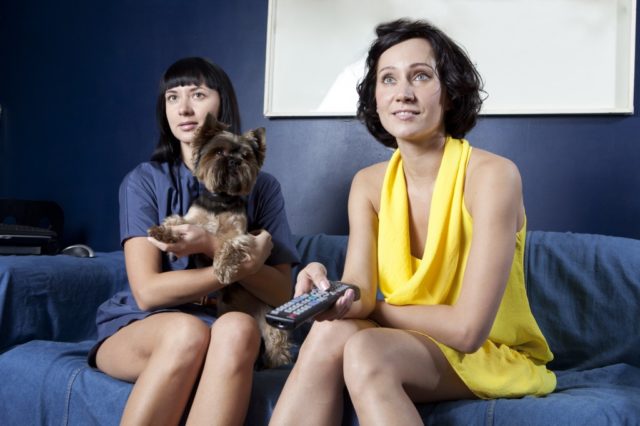
13. Sharing our territory
Canines have evolved to be very protective of their territory and selective of who they allow inside it. For domestic pups, their homes and yards comprise their territory so it’s no wonder they become defensive when random strangers breach the borders. Delivery people, neighbors, friends, and loved ones are often treated with suspicion and must be thoroughly sniffed upon entry.
It must be even more confusing when we visit other territories and bring back the odors of other humans, unfamiliar dogs, and more.
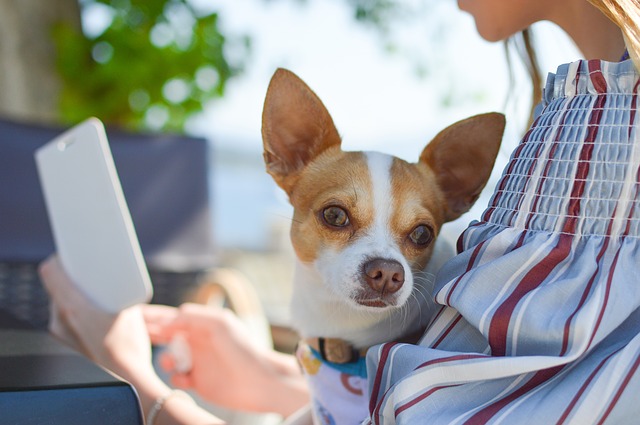
If you enjoyed this article, check out 13 Things Humans Do That Dogs Dislike.
h/t: healthypets.mercola.com, vetstreet.com, and sciencealert.com
The post 13 Ways We Confuse & Frustrate The Heck Out of Our Dogs appeared first on iHeartDogs.com.
via Whisker Therapy
